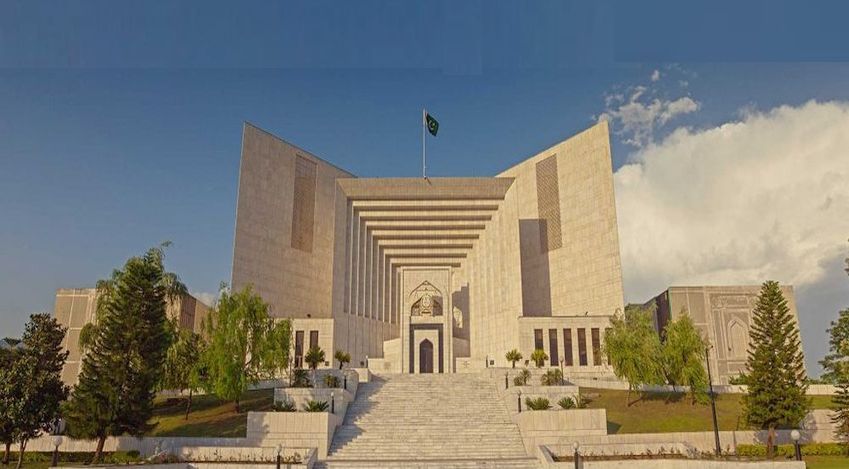The Party claiming an Oral Agreement must clearly prove the Mutual Agreement and Consensus on the Terms of the Contract --- Supreme Court of Pakistan
Islamabad 09-08-2024: In a recent decision, the Supreme Court of Pakistan dismissed the Civil Petition filed by Hafiz Qari Abdul Fateh's legal representatives, challenging a High Court judgment related to a land dispute in Ghotki. The judgment, delivered by a bench comprising Mr. Justice Syed Hasan Azhar Rizvi and Mr. Justice Aqeel Ahmed Abbasi, upheld the previous decisions of the appellate and trial Courts, emphasizing the stringent requirements for proving oral agreements in land transactions.
The case originated from a suit [F.C. No. 27 of 1999] filed by Hafiz Qari Abdul Fateh for the specific performance of an alleged oral agreement for the sale of 37 Ghunta of agricultural land in Deh Qadirpur, Ghotki. The trial Court had initially ruled in favor of the petitioner, but this decision was overturned by the District Judge of Ghotki and subsequently upheld by the High Court of Sindh.
The petitioner's counsel argued that the High Court judgment suffered from misreading and non-reading of evidence, asserting that the trial Court's decision was legally sound. They contended that the petitioner had provided sufficient evidence to prove the oral agreement.
The Supreme Court, after examining the arguments and evidence, reiterated key legal principles related to oral agreements. The Court highlighted that a valid and enforceable contract must include offer, acceptance, consideration, and mutual obligations, and must be proven with clear and satisfactory evidence. Citing precedents such as “Maqbool Ahmad v. Suleman Ali” (PLD 2003 SC 31) and “Muhammad Riaz and others v. Mst. Badshah Begum and others” (2021 SCMR 605), the Court emphasized the necessity for detailed pleadings specifying the date, time, place, and witnesses of the oral agreement.
The Court noted significant inconsistencies in the petitioner's pleadings and evidence. The petitioner failed to provide specific details of the oral agreement and did not justify the authority of respondent No.1's father to enter into the agreement on her behalf. Additionally, the receipt produced as evidence was deemed bogus and doubtful.
The judgment reinforced several legal principles:
1. Burden of Proof in Oral Agreements: The party claiming an oral agreement must clearly prove the mutual agreement and consensus on the terms of the contract.
2. Detailed Pleadings Required: Detailed specifications in pleadings are crucial to prevent dishonest improvements in evidence.
3. Consistency of Evidence with Pleadings: Evidence must be consistent with the pleadings; otherwise, it cannot be considered.
4. Non-Interference by Supreme Court: The Supreme Court does not typically interfere with High Court findings unless they are evidently against the evidence or perverse.
The Supreme Court found no misreading or non-reading of evidence by the lower Courts and upheld their decisions. The petition was dismissed, and leave was refused, reiterating the importance of stringent proof requirements for oral agreements in land transactions.
Powered by Froala Editor








